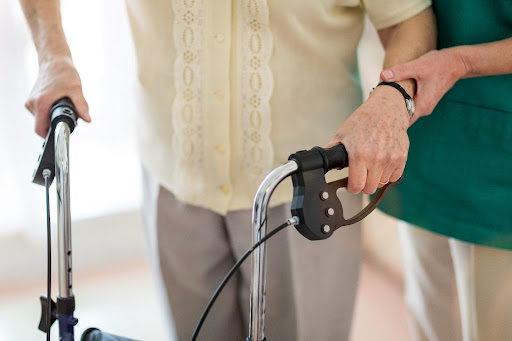
Understanding Parkinson’s Disease
Parkinson’s Disease is a progressive disorder affecting the nervous system. According to Parkinson’s Foundation, nearly one million Americans live with Parkinson’s Disease, with more than 60,000 new cases diagnosed each year. April is Parkinson’s Awareness Month. It’s a time dedicated to learning about Parkinson’s Disease and helping individuals with the condition navigate their future.
What is Parkinson’s Disease
Parkinson’s Disease is when some of the brain’s neurons break down or die. Many of the neurons that experience damage are responsible for producing dopamine. Without the proper amount of dopamine, an individual can experience movement challenges such as tremors, impaired balance, and slowed movement. Other symptoms associated with Parkinson’s include speech changes and muscle stiffness that causes pain and limits your range of motion. Additional signs and symptoms of Parkinson’s Disease include blood pressure changes and fatigue.
Researchers are still discovering the cause of Parkinson’s Disease, but genes and environmental factors, such as exposure to certain toxins, appear to play a role in the condition’s development. Parkinson’s Disease is also more likely to develop in people after 60. It’s also more common in men and those with a family history of Parkinson’s Disease.
Complications Associated with Parkinson’s Disease
Parkinson’s is a progressive condition, and in its early stages, many people don’t experience any symptoms. However, as the disorder develops, it’s common to experience a range of complications.
- Cognitive changes- People with late-stage Parkinson’s may experience dementia or trouble thinking clearly. They may also experience memory and recall challenges that worsen with time.
- Depression- It can be challenging to cope with a disorder that significantly affects the body and mind, and it’s not uncommon for someone with Parkinson’s to develop depression. They may also suffer from anxiety, lack of motivation, or uncontrollable fear.
- Eating and swallowing challenges. Parkinson’s Disease affects a person’s muscles, including those they need to eat, chew, and swallow. Eating certain foods can become a choking hazard if someone has trouble chewing. Trouble swallowing can also make it difficult to keep excess saliva from pooling in the mouth, causing drooling.
- Sleep disorders. Parkinson’s can cause trouble falling asleep and staying asleep at night. It may also cause a person to have difficulty waking up early.
- Bladder problems. Since Parkinson’s can cause changes in a person’s muscles, some people experience challenges controlling their bladder.
Living with Parkinson’s Disease
There is no cure for Parkinson’s Disease. However, treatments are available to minimize symptoms. A standard treatment suggested by doctors is physical therapy. Physical therapy can help with balance and mobility. A physical therapist may also work on strength training and stretching to strengthen muscles. Some individuals also work with a speech therapist to improve any speech changes.
Some doctors may prescribe medications to substitute for dopamine loss, improve movement, and limit tremors. In some cases, a person may also undergo surgery such as deep brain stimulation (DBS). DBS is when a surgeon implants a device into the brain to help reduce Parkinson’s symptoms. This surgery is typically only done in people with advanced stages of Parkinson’s.
Lifestyle and at-home remedies can also make it easier to live with Parkinson’s. Lifestyle changes include healthy eating, physical activity to improve muscle strength and control, regular massages to relieve muscle tension, yoga to improve balance and flexibility, and meditation to reduce stress or depression.
Working with Visiting Angels
If you’re an older adult living with Parkinson’s Disease and need assistance around the house, the team at Visiting Angels can help. We have professional caregivers trained to work with Parkinson’s Disease clients to make them feel safe and comfortable at home. Our caregivers provide various non-medical services such as light housekeeping, medication reminders, personal grooming, meal preparation, mobility assistance, and more.
Our Garland office works with those in Fate, Heath, Lucas, Quinlan, Rockwall, Rowlett, Royse City, Sachse, West Tawakoni, and Wylie communities. Give us a call at 214. 703.8123 or complete this online form to learn more about our services.
